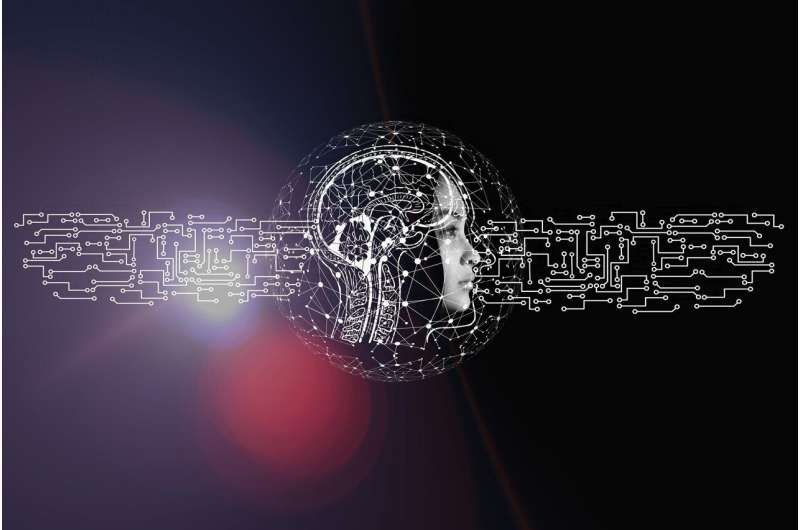This article has been reviewed according to Science X's editorial process and policies. Editors have highlighted the following attributes while ensuring the content's credibility:
fact-checked
trusted source
proofread
In a world where AI's impact is growing, exactly what is consciousness?

Rumors of artificial intelligence becoming sentient abound. In July of 2022, a Google engineer claimed that an AI chatbot he was working with had become self-aware. The same AI recently passed the Turing Test, once considered the gold standard for determining if something was human.
Uncertainty about consciousness also extends into the animal kingdom. The U.K. recently declared that octopuses, lobsters and crabs were sentient. Dolphins have demonstrated self-awareness. This is all complicated by the fact that we still don't exactly know what human consciousness is. Science still can't explain it.
A recent Dornsife "Dialogues" panel brought together two scholars from disparate departments at the College to discuss this enduring enigma and answer timely questions.
How do you define consciousness?
"Once we get into the nitty gritty of consciousness from a psychological or neuroscientific point, it has to do with experience. You have the experience of your life going on in your organism and the thoughts that are in your mind, and that experience has a perspective of the self," explains Antonio Damasio, University Professor, professor of psychology, philosophy and neurology, and David Dornsife Chair in Neuroscience. "You don't create consciousness with the brain alone. You create consciousness with a partnership between the brain, the nervous system and the rest of the living organism."
Are there levels of consciousness? And if so, is human consciousness somehow superior to that of other species?
"I'm always worried about putting things in a direct hierarchy," says Tok Thompson, professor (teaching) of anthropology. "It's easy to look around and be impressed by what humans have managed to do. We have iPhones, computers and Zoom, but that's not really what makes us, us. We spent most of our time as hunter gatherers. There are plenty of hunters and gatherers still out there, and they're fully as human as I am.
"[In terms of levels of consciousness] I would add on the purposeful ones, the altered states of consciousness that people seek. We find this in many, many societies around the world. Shamanism is built on this. There's a new study out that says gorillas like to spin themselves around to get dizzy, to experience that altered state of consciousness. So, we may not be alone."
How do we really know if something is conscious?
"For me, the test always starts with feelings. Static feelings are the inaugural events of consciousness," says Damasio. "They are the test for whether some creature or organism is conscious or not. If that organism has a feeling, like comfort or discomfort, in a palpable way, then it's conscious. If there is no indication that there is that element of potential suffering or potential joy and pleasure, then it's not conscious."
Will we one day be able to download our consciousness into a machine to live forever?
"Well, what is this 'me?'" asks Thompson. "For example, I try to eat probiotic yogurt every day. Studies have shown that these little organisms live in your gut, help calm you down and reduce stress. The days you don't have it, your stress level goes up. So, 'me' includes those little guys in my gut. How could I upload them into the cloud with me? I don't think we could."




















